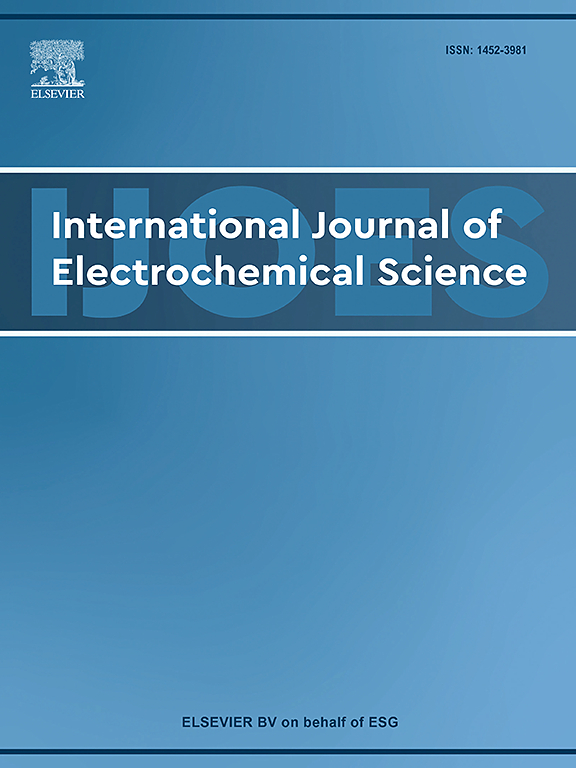X65海底管道腐蚀行为及缓蚀剂研究
IF 2.4
4区 化学
Q4 ELECTROCHEMISTRY
International Journal of Electrochemical Science
Pub Date : 2025-06-13
DOI:10.1016/j.ijoes.2025.101098
引用次数: 0
摘要
在本研究中,通过高温高压高压灭菌器、电化学测试和多相流回路等方法,研究了X65管道钢在不同生产工艺下的腐蚀行为和腐蚀机理。此外,还考察了缓蚀剂的保护作用。结果表明:当CO2分压为0.04 MPa时,随着流速从0 ~ 4 m/s增加,X65管线钢的腐蚀速率从0.023 ~ 0.183 mm/a增加;腐蚀速率的增加是由于流体流动引起的壁面剪切应力的增加,突出了流动加速腐蚀的影响。在CO2含量为0.39 % ~ 10 %(分压为0.04 ~ MPa)条件下,随着CO2含量的增加,X65管线钢的腐蚀速率由0.085增加到0.293 mm/a。添加浓度为200 ppm的ls - a型咪唑啉基缓蚀剂,缓蚀效率达到86.69 %。研究表明,在温度不超过40℃、流速不超过4 m/s的现场生产条件下,具有较高的缓蚀性能。本文章由计算机程序翻译,如有差异,请以英文原文为准。
Study on Corrosion Behaviour and Corrosion Inhibitor of X65 Subsea Pipelines
In this study, the corrosion behaviour and corrosion mechanisms of X65 pipeline steel was examined in different production processes by using high-temperature and high-pressure autoclaves, conducting electrochemical testing, and employing multiphase flow loops. In addition, the protective effect of a corrosion inhibitor was examined. The results indicated that at a CO2 partial pressure of 0.04 MPa, the corrosion rate of X65 pipeline steel increased from 0.023 to 0.183 mm/a as the flow rate was increased from 0 to 4 m/s. This increase in the corrosion rate was attributable to an increase in wall shear stress caused by fluid flow, highlighting the effect of flow-accelerated corrosion. Under a CO2 content of 0.39 %–10 % (with a partial pressure of 0.04–1 MPa), the corrosion rate of X65 pipeline steel increased from 0.085 to 0.293 mm/a with increasing CO2 content. The addition of an LS-A-type imidazoline-based corrosion inhibitor concentration of 200 ppm, the corrosion inhibition efficiency reached 86.69 %.Study indicating high corrosion inhibition performance under field production conditions with temperatures not exceeding 40°C and flow rates not exceeding 4 m/s.
求助全文
通过发布文献求助,成功后即可免费获取论文全文。
去求助
来源期刊
CiteScore
3.00
自引率
20.00%
发文量
714
审稿时长
2.6 months
期刊介绍:
International Journal of Electrochemical Science is a peer-reviewed, open access journal that publishes original research articles, short communications as well as review articles in all areas of electrochemistry: Scope - Theoretical and Computational Electrochemistry - Processes on Electrodes - Electroanalytical Chemistry and Sensor Science - Corrosion - Electrochemical Energy Conversion and Storage - Electrochemical Engineering - Coatings - Electrochemical Synthesis - Bioelectrochemistry - Molecular Electrochemistry

 求助内容:
求助内容: 应助结果提醒方式:
应助结果提醒方式:


